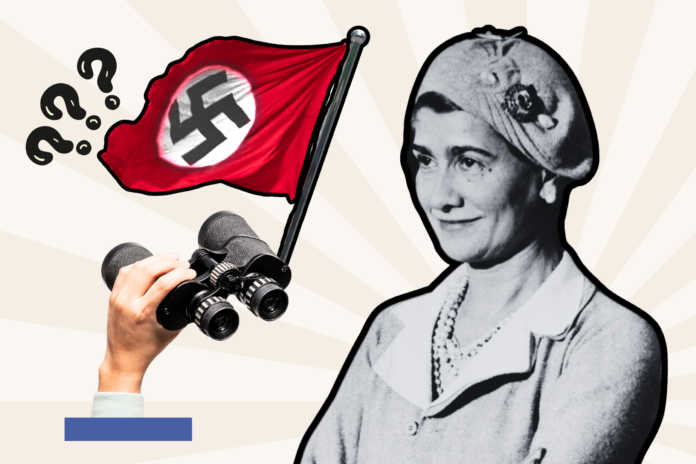Apple TV+’s historical drama The New Look has arrived, shining new light on the complicated legacy of Coco Chanel.
The 10-episode series follows designer Christian Dior (Ben Mendelsohn) as he navigates life during World War II, including his rivalry with the fellow French fashion icon.
There is substantial evidence that Chanel worked as a spy for the German intelligence agency, the Abwehr, from 1941 to 1944. Juliette Binoche, who portrays Chanel in The New Look, describes the designer’s relationship with the Nazis as “complex.”
What exactly were Chanel’s ties to the Nazis? Newsweek takes a look at the style legend’s controversial wartime exploits.
Was Coco Chanel a Nazi? (keep h2 for SEO)
Chanel is best remembered for inventing the little black dress, popularizing low-maintenance style, and her legendary Chanel No. 5 perfume—one of the best-selling scent of all time.
However, declassified documents in 2011 revealed her time as an alleged Nazi spy during World War II.
According to journalist Hal Vaughn, author of Sleeping with the Enemy: Coco Chanel’s Secret War, Chanel’s involvement with the Abwehr began during her relationship with German intelligence officer Baron Hans Günther von Dincklage (played by Claes Bang in The New Look).
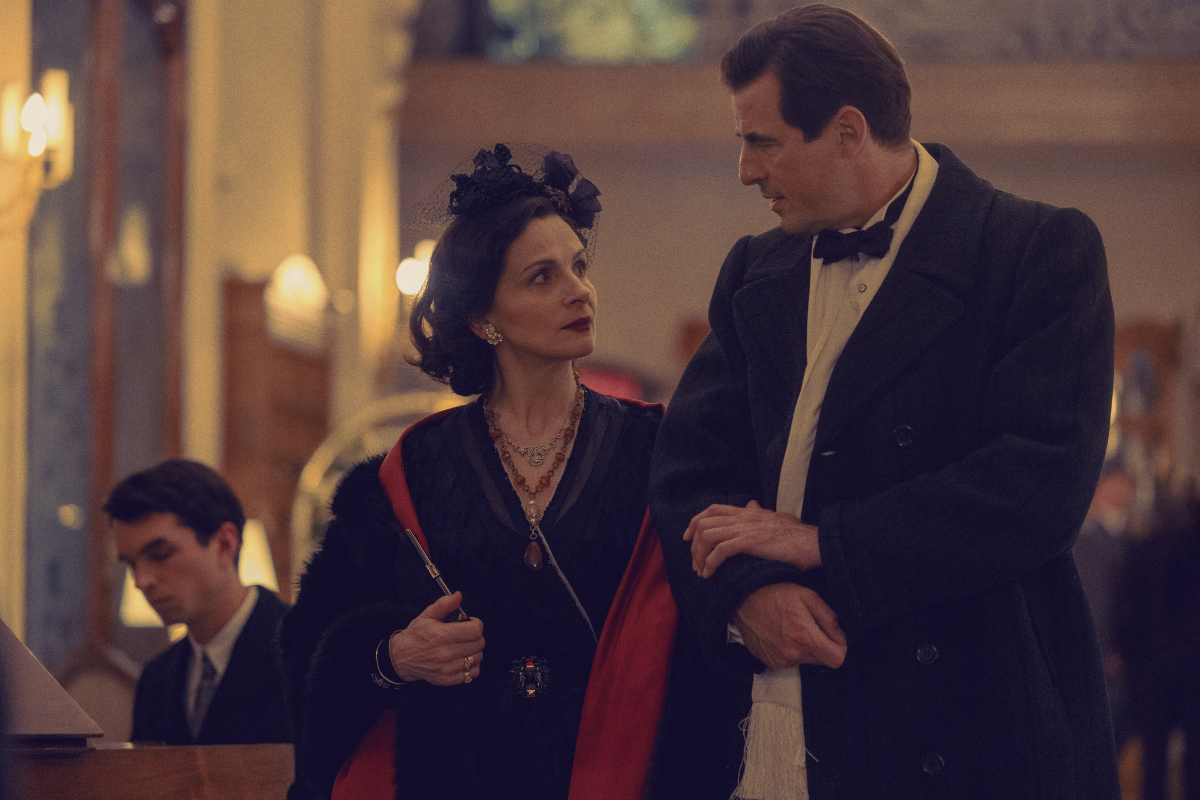
Apple TV+
Vaughn collated files from French, German, American and British archives to explore Chanel’s wartime activities. The couturier supposedly joined the German intelligence agency in 1941, when France was occupied by the Nazis.
Chanel reportedly used the code name “Westminster,” after her previous affair with the Duke of Westminster, Hugh Grosvenor.
Chanel’s success granted her access to Europe’s wealthy elite, including a lifelong friendship with British Prime Minister Winston Churchill. Chanel was purportedly tasked with recruiting new spies for the Nazis, along with using her connections to collect information that could help the Third Reich take over Madrid, Spain.
Was Coco Chanel Racist or Antisemitic?
Chanel’s association with the far-right reportedly goes back further than her romance with Dincklage.
In 1933, she financed the far-right magazine Le Témoin, created by her French illustrator and late fiancé, Paul Iribe.
However, historians are split on whether Chanel was antisemitic. Some researchers believe she had a deeply entrenched dislike of Jewish people, while others suspect that her association with the Nazis was opportunistic, rather than idealistic.
Historian Anne de Courcy, author of Chanel’s Riviera: Glamour, Decadence and Survival in Peace and War, said the designer was “certainly” antisemitic.
“As to collaboration, Chanel was what was called a “collaborateur horizontale”—that is, she had a German lover,” Courcy told Newsweek in 2020. “Deplorable, I know—but here it is worth remembering that so did masses of other Frenchwomen, as up to 100,000 Franco-German babies were born in WWII.”
Vaughn said Chanel’s collusion with the Nazis was an attempt to restore her power in France.
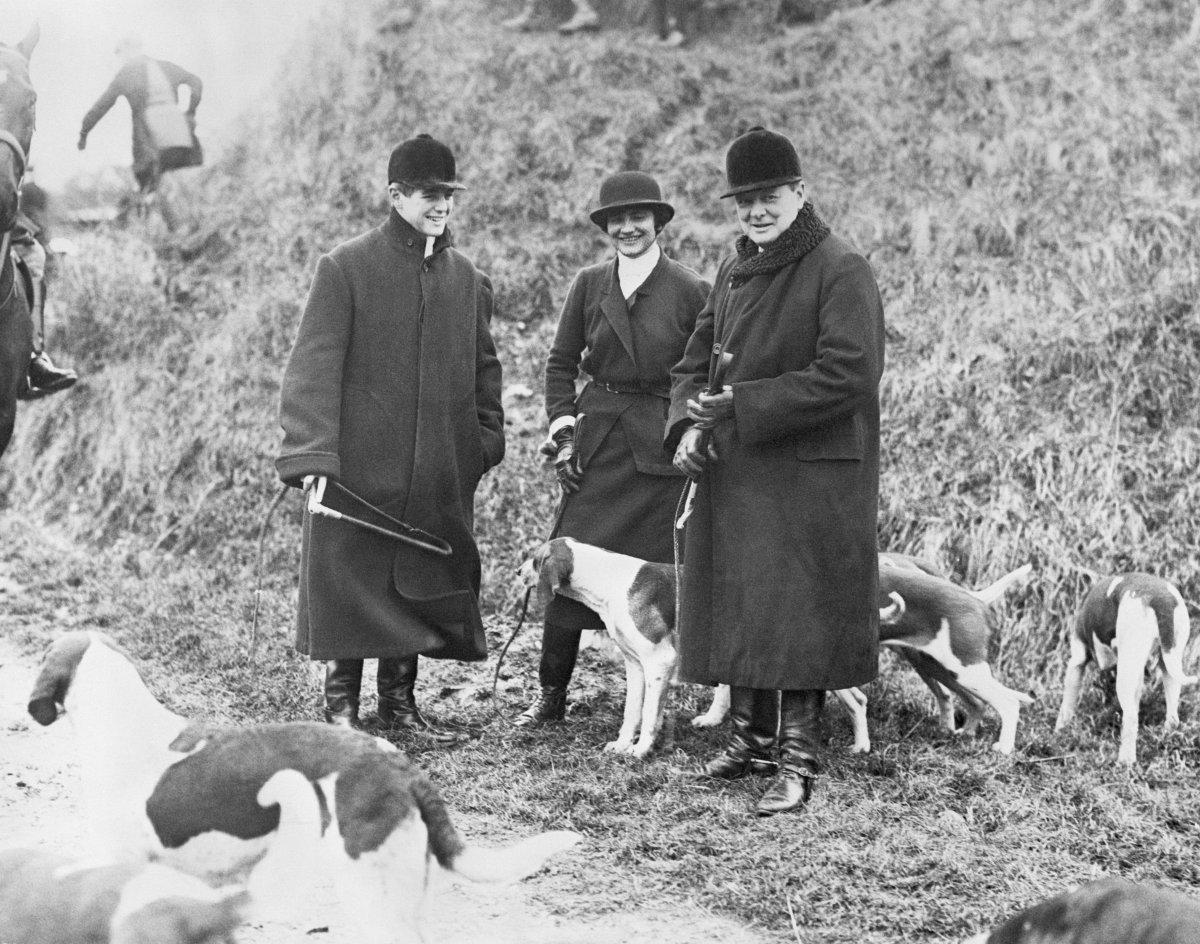
Bettmann
In 1924, she made a deal with French businessmen Pierre and Paul Wertheimer. The brothers, directors of cosmetics brand Bourjois, set up Parfums Chanel to bankroll the production, promotion and distribution of Chanel No. 5 perfume.
The Wertheimers received 70 percent of the profits, while Chanel was granted 10 percent. She became unhappy with the arrangement, and as the Wertheimers were Jewish, she attempted to use the Nazis’ “Aryanization” law to take over of the business.
She petitioned the German government, but the Wertheimers were prepared and legally handed control of Parfums Chanel to their friend, Félix Amiot, who gave it back to them once the war ended.
The 2017 French documentary The No 5 War detailed Chanel’s battle with the Wertheimer brothers. The family still holds the controlling stake in Chanel today and refuses to discuss the designer with the media.
Chanel’s collaboration with the Abwehr could also have been personally motivated. After her nephew, André Palasse, whom some historians theorize was actually Chanel’s biological son, was imprisoned in Germany in 1941, she reportedly used her Nazi contacts to have him released.
In his book, Vaughn claims that Chanel was assigned to Operation Modellhut in 1943 by the SS. The businesswoman was expected to use her friendship with Churchill to pass along messages, but a mutual friend outed Chanel as a German agent.
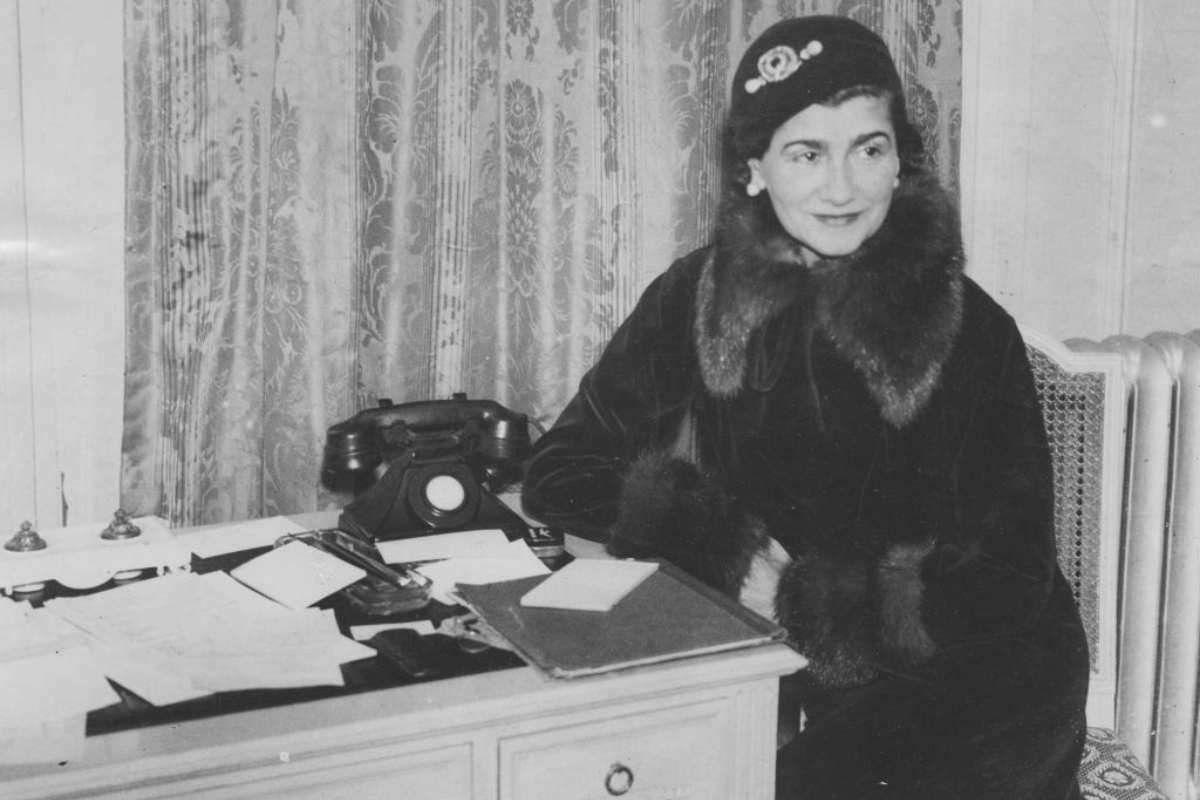
FPG/Archive Photos
Coco Chanel: Resistance Fighter?
In her 2010 book, Coco Chanel: The Legend and the Life, fashion writer Justine Picardie posits Chanel as a resistance fighter, suggesting a multi-faceted relationship with the Nazis and the Allied forces.
According to Picardie, Chanel’s villa in La Pausa, France, was loaned to a local resistance group, which used the building to hide Jewish refugees and transmit covert messages by wireless.
Chanel’s name appears in a document discovered in the official French archives, along with 400,000 other supposed resistance members, linking her to the underground allied intelligence network ERIC.
Nevertheless, after Chanel was arrested for allegedly colluding with Germany, her supposed work with the resistance was never mentioned, nor did it come up during the subsequent investigation into her wartime activities.
Many have also taken offense to the notion of Chanel as a resistance fighter, believing it an attempt to white-wash the designer’s history and make her more palatable to a modern audience.
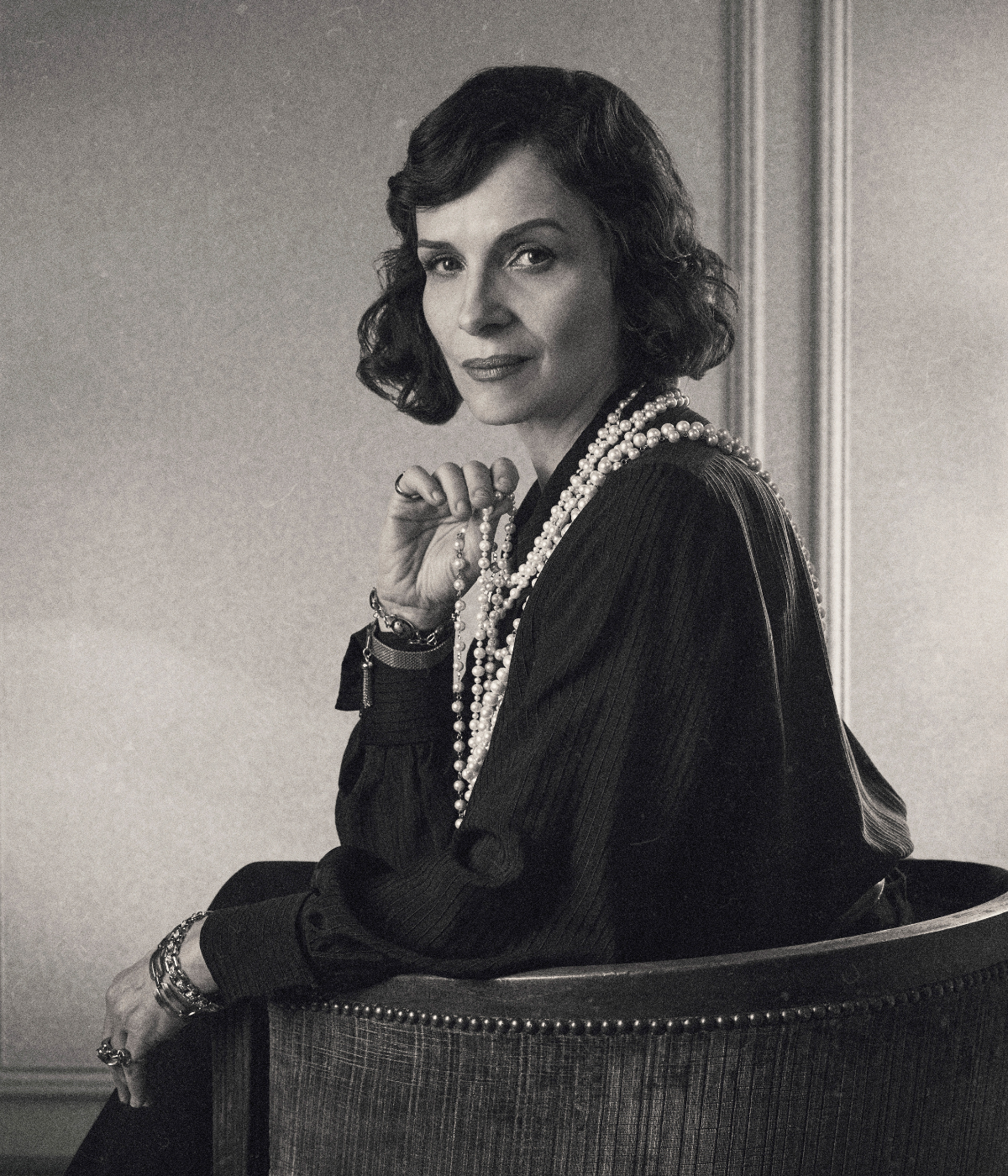
Apple TV+
Coco Chanel’s Complicated Legacy
Chanel didn’t immediately see any consequences for her alleged intelligence work, but after France was reclaimed from the Germans in 1944, she was questioned by the Free French Purge Committee.
She denied the accusations and was released. However, it is rumored that Churchill stepped in to save his friend. Chanel reportedly had dirt on a number of British aristocrats, many of whom were known to fraternize with Nazis.
With at least three Nazis listing Chanel as a German agent and a warrant issued to investigate her wartime pursuits, she fled to neighboring Switzerland, where she spent the following decade.
Chanel returned to Paris in 1954, and was initially viewed as a traitor in her native country. However, time cushioned her reputation as a Nazi sympathizer, and she was able to revive her career.
Upon her death in 1971, she was mourned in France as a fashion legend. In 2011, Maison Chanel denied that its founder had spied for the Nazis, painting the reports as a “love story” gone wrong with a German official.
Uncommon Knowledge
Newsweek is committed to challenging conventional wisdom and finding connections in the search for common ground.
Newsweek is committed to challenging conventional wisdom and finding connections in the search for common ground.


